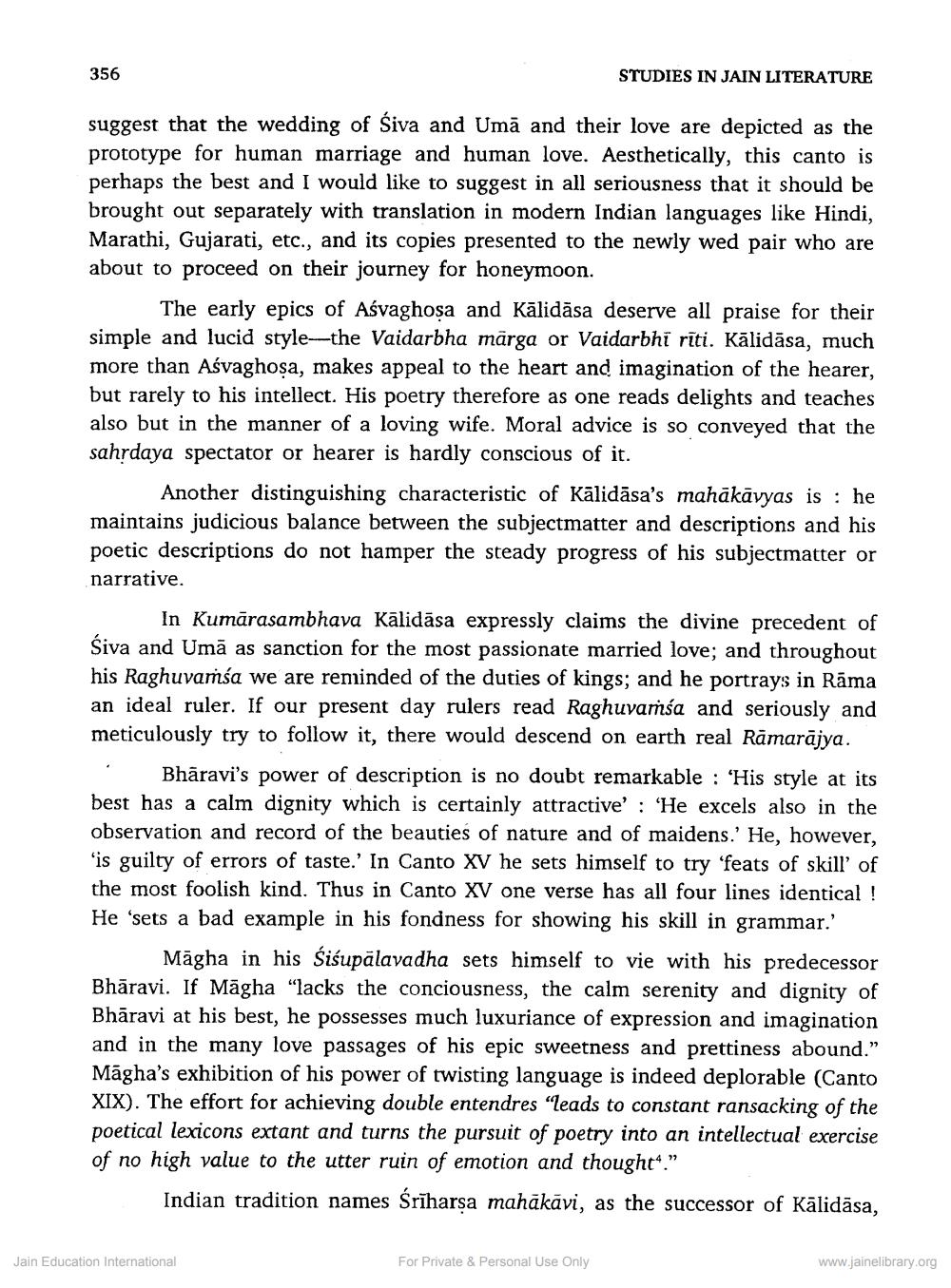________________ 356 STUDIES IN JAIN LITERATURE suggest that the wedding of Siva and Uma and their love are depicted as the prototype for human marriage and human love. Aesthetically, this canto is perhaps the best and I would like to suggest in all seriousness that it should be brought out separately with translation in modern Indian languages like Hindi, Marathi, Gujarati, etc., and its copies presented to the newly wed pair who are about to proceed on their journey for honeymoon. The early epics of Asvaghosa and Kalidasa deserve all praise for their simple and lucid style--the Vaidarbha marga or Vaidarbhi riti. Kalidasa, much more than Asvaghosa, makes appeal to the heart and imagination of the hearer, but rarely to his intellect. His poetry therefore as one reads delights and teaches also but in the manner of a loving wife. Moral advice is so conveyed that the sahrdaya spectator or hearer is hardly conscious of it. Another distinguishing characteristic of Kalidasa's mahakavyas is ; he maintains judicious balance between the subjectmatter and descriptions and his poetic descriptions do not hamper the steady progress of his subjectmatter or narrative. In Kumarasambhava Kalidasa expressly claims the divine precedent of Siva and Uma as sanction for the most passionate married love; and throughout his Raghuvamsa we are reminded of the duties of kings; and he portrays in Rama an ideal ruler. If our present day rulers read Raghuvamsa and seriously and meticulously try to follow it, there would descend on earth real Ramarajya. . Bharavi's power of description is no doubt remarkable : 'His style at its best has a calm dignity which is certainly attractive' : 'He excels also in the observation and record of the beauties of nature and of maidens.' He, however, 'is guilty of errors of taste.' In Canto XV he sets himself to try 'feats of skill of the most foolish kind. Thus in Canto XV one verse has all four lines identical ! He 'sets a bad example in his fondness for showing his skill in grammar.' Magha in his sisupalavadha sets himself to vie with his predecessor Bharavi. If Magha "lacks the conciousness, the calm serenity and dignity of Bharavi at his best, he possesses much luxuriance of expression and imagination and in the many love passages of his epic sweetness and prettiness abound." Magha's exhibition of his power of twisting language is indeed deplorable (Canto XIX). The effort for achieving double entendres "leads to constant ransacking of the poetical lexicons extant and turns the pursuit of poetry into an intellectual exercise of no high value to the utter ruin of emotion and thought4." Indian tradition names Sriharsa mahakavi, as the successor of Kalidasa, Jain Education International For Private & Personal Use Only www.jainelibrary.org




